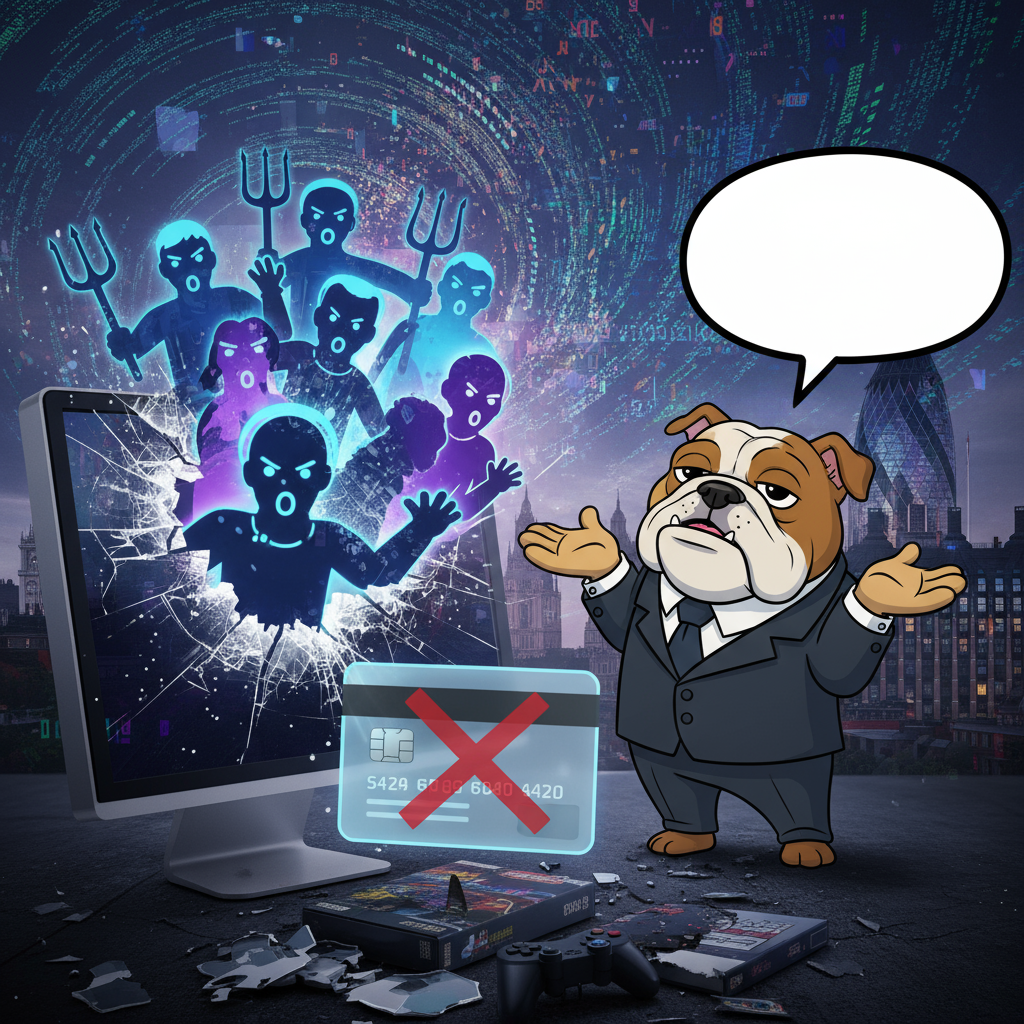“Free Market, Baby”: UK Government’s Hands-Off Approach to NSFW Gaming Chaos
A storm is brewing in the digital playground. A 10,000-strong petition, urging the UK government to intervene in the increasingly precarious landscape of NSFW (Not Safe For Work) Steam games, has been met with a resounding, albeit familiar, shrug. The official response? A firm assertion that this is a matter for the “free market, baby.” This seemingly dismissive stance raises important questions about censorship, corporate power, and the evolving definition of digital freedom.
For many developers of adult-oriented games, and their dedicated players, this isn’t just about pixels and polygons; it’s about livelihoods, artistic expression, and the fundamental right to engage with content of their choosing. The “nuking” of games by payment processors, often without clear justification or recourse, is creating a climate of fear and uncertainty within a niche but vibrant segment of the gaming industry.
The Payment Processor Purge: A Silent Censor?

The core of the issue lies with payment processors – the digital gatekeepers that facilitate transactions between consumers and sellers. Companies like PayPal, Visa, and Mastercard wield immense power, capable of deplatforming content creators by simply refusing to process payments for certain types of content. While their terms of service often prohibit illegal material, the interpretation and enforcement of “adult” or “objectionable” content can be incredibly broad and, some argue, arbitrary.
This isn’t a new phenomenon. We’ve seen similar issues plague other industries, from adult entertainment to independent artists. However, in the context of video games, the effect can be particularly devastating. A small indie studio, for example, might pour years of work into a game only to have its revenue stream cut off overnight due to a payment processor’s sudden shift in policy or a vague interpretation of adult content guidelines. This often happens without prior warning or a clear path to appeal, leaving developers in limbo and players unable to support their favourite creators.
The consequences extend beyond financial losses. It stifles creativity, pushing developers towards self-censorship to avoid potential deplatforming. It also creates a chilling effect, as other platforms become wary of hosting content that might attract the ire of these powerful financial intermediaries. The result is a fragmented and less diverse digital marketplace, where freedom of expression is silently curtailed not by governmental decree, but by corporate policy.
“Free Market, Baby”: A Convenient Evasion?

The UK government’s response, framing this as a “free market” issue, is both economically orthodox and politically convenient. In theory, a free market encourages competition and allows consumers to vote with their wallets. If one payment processor enforces strict adult content policies, another might emerge with more lenient terms, thereby creating a diverse ecosystem where everyone can find a service that suits their needs.
However, the reality in the payment processing sector is far from this idealized vision. The market is dominated by a few major players, making it difficult for smaller, more permissive processors to gain traction or even operate without being reliant on the larger networks. This creates a de facto monopoly on transaction services, granting these few entities immense power over what can and cannot be sold online.
Furthermore, the “free market” argument often ignores the inherent power imbalances. For many independent developers, particularly in niche markets, switching payment processors is not as simple as choosing a different bank. It can involve significant technical hurdles, contractual obligations, and the loss of established customer bases. The government’s stance, therefore, appears to sidestep the very real problem of corporate censorship masquerading as market choice.
The Slippery Slope: Where Do We Draw the Line?
The debate around NSFW Steam games inevitably leads to a larger philosophical question: where do we draw the line? If payment processors can unilaterally decide what content is acceptable, what prevents them from expanding their purview to other forms of content they deem “risky” or “controversial”? We’ve seen instances of platforms flagging political speech, artistic expressions, or even educational content under broad “harmful content” guidelines.
This isn’t about advocating for illegal pornography or harmful content. It’s about legitimate adult entertainment and artistic expression that, while not appealing to everyone, is not illegal and does not cause direct harm. The concern is that unbridled power wielded by private entities, without democratic oversight or robust appeal mechanisms, can lead to a gradual but significant erosion of online freedoms. The petition’s intent was not to demand government censorship, but rather to request protection against private censorship.
The government’s refusal to engage potentially sets a precedent: that private companies, rather than elected officials or courts of law, are the ultimate arbiters of what is acceptable in the digital realm. This approach risks outsourcing crucial decisions about content moderation to algorithms and corporate liability concerns, rather than public discourse and democratic principles.
Conclusion: Beyond the “Free Market” Rhetoric
The UK government’s response to the 10,000-strong petition highlights a growing tension between the ideals of the free market and the realities of digital life. While the concept of market forces is appealing, it fails to address the unique power dynamics of the modern internet, where a few powerful intermediaries can dictate the terms of engagement for an entire industry. For developers and players of NSFW Steam games, this isn’t just about economics; it’s about an increasingly precarious future where their ability to create, sell, and consume content is subject to the opaque and often arbitrary whims of payment processors.
Perhaps it’s time for governments to look beyond the simplistic “free market, baby” rhetoric and consider what genuine digital freedom truly entails. This might involve exploring regulatory frameworks that ensure transparency from payment processors, establish clear guidelines for content moderation, and provide developers with adequate recourse when their livelihoods are jeopardized. Ignoring the problem, as this response suggests, will only allow the silent censors to gain more power, ultimately to the detriment of a diverse, innovative, and truly free digital landscape.

